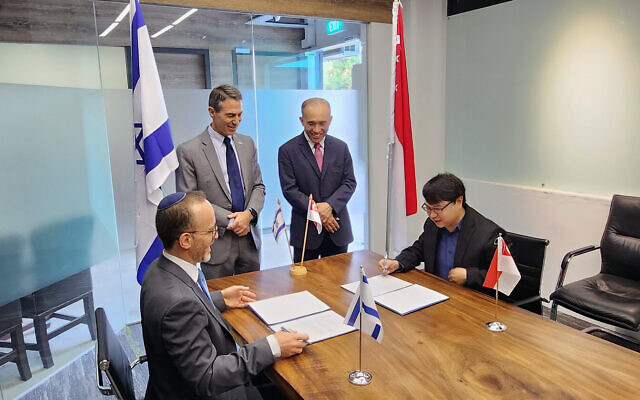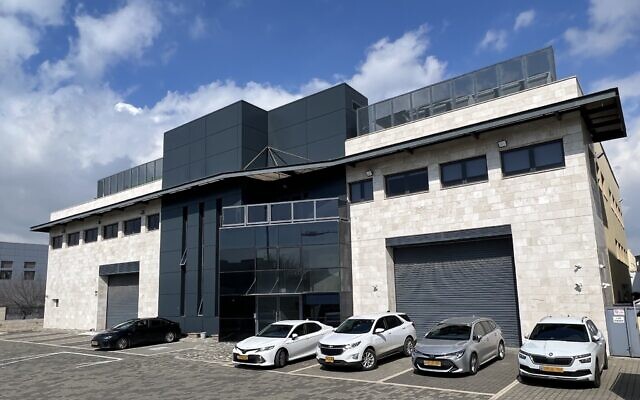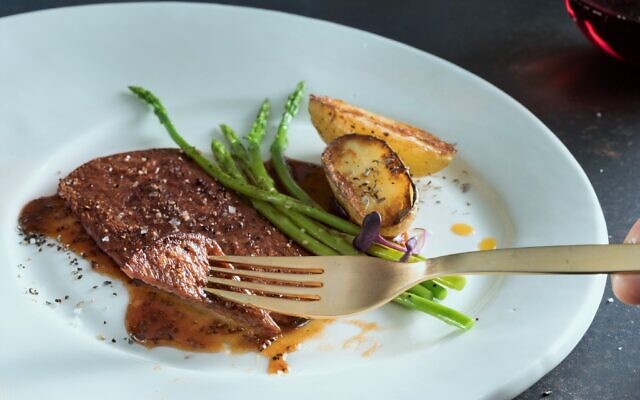Kosher, Now Maybe Halal: Aleph Farms to Produce Cultivated Steak
Startup plans to operate the world’s first halal-certified facility for the production of cultivated meat in Singapore; buys Israel factory ahead of commercial launch.
Aleph Farms is seeking to become the first halal-certified cultivated meat producer, as the Rehovot-based startup is gearing up to open two new facilities, in Israel and Singapore, to ramp up production ahead of the commercial launch of its thin-cut steaks.
The maker of cultivated meat — meat that comes from non-modified cattle cells — announced on Wednesday that it has inked a deal to buy a Modi’in-based manufacturing facility and related equipment from biotechnology company VBL Therapeutics for about $7.1 million. The new facility will be paired with the technology at the startup’s production site in Rehovot to boost local output and turn Israel into a hub for expansion in the region.
In parallel, Aleph said it entered into a partnership with Singapore’s ESCO Aster, a contract manufacturing organization, to establish a facility for the production of cultivated meat in the country with a capacity to produce 10 to 20 tons of its steaks per year. ESCO Aster is the first company that received full regulatory approval from the Singapore Food Agency and necessary certifications, to produce cultivated meat for commercial sales.

The two deals come as Aleph is targeting the commercial rollout of its first product, a cultivated thin-cut steak, for this year or 2024 pending regulatory approval in Israel and Singapore.
The startup is one of the main players in the growing Israeli food tech sector, which in recent years has become an important hub for cultured meat — a key subsector in the alternative protein market, which comprises plant-based substitutes for meat, dairy, and egg; cultured dairy, meat and seafood; insect proteins; and fermentation products and processes.
In the cultivated meat subsector, Israeli companies last year drew just over $105 million in investments, accounting for about 12 percent of total investments in the space worldwide and ranking second to the US.
To produce its meat, Aleph leverages the ability of animals to grow tissue muscle constantly and isolates the cells responsible. It then reproduces the optimal conditions for these cells to grow into tissue, basically growing meat outside the animal. The tissue is grown in tanks that act as fermenters, similar to those in a brewery. There the cells are nurtured and shaped into a 3D structure that makes the meat.
“Israel and Singapore are the first two markets where we intend to launch our cultivated thin-cut steak. Building up production capacity quickly in those locations while keeping capital investment lean provides a clear roadmap to scalability,” said Aleph co-founder and CEO Didier Toubia. “Beyond Israel and Singapore, we plan on building additional strategic assets worldwide as part of our effort to bring more security and resilience to food systems.”
The partnership with ESCO Aster comes as Singapore has set its “30 by 30” goal — the establishment of agri-food capabilities that can satisfy 30 percent of the island’s nutritional needs locally and sustainably by 2030.

Aleph also plans to produce different cuts of steak as well as other products based on animal cells, such as cultivated collagen.
“From a single fertilized egg, Aleph Farms can grow thousands of tons of cultivated meat, serving as part of a just and inclusive transition to sustainable and secure food systems,” the company said in a statement.
In planning its global expansion, Aleph is also looking to target consumers with various religious dietary requirements and habits. Together with ESCO Aster, the startup is working toward establishing the first halal-certified facility for cultivated meat in the world at the site in Singapore, to allow consumption by Muslims under religious law.
ESCO Aster CEO Xiangliang (XL) Lin said that the two companies “will work together with religious authorities on obtaining a halal certificate for [ESCO Aster’s] facility, enabling… collaboration with Aleph to expand to even more of the broader region.”
The certification, if attained, is part of Aleph’s strategy to expand its footprint to Southeast Asia, where about 42 percent of the population is Muslim, the startup said.
In January, Ashkenazi Chief Rabbi David Lau determined that the cultured meat produced by Aleph, though not necessarily all cultured meat, is indeed kosher and that it is “pareve,” designating a food that is neither meat (sometimes referred to as fleishig) nor dairy (milchig).
Lau’s ruling was based primarily on the fact that Aleph, along with several other companies, uses a process in which its meat is cultivated from stem cells taken from fertilized egg rather than from cells of muscle tissue.
Toubia co-founded Aleph in 2017 with Prof. Shulamit Levenberg of the Biomedical Engineering Faculty at the Technion – Israel Institute of Technology, alongside Israeli food-tech incubator The Kitchen, a part of the Strauss Group. To date, the startup has raised a total of $120 million from a number of private and public investors such as actor and environmental activist Leonardo DiCaprio.
Other investors include L Catterton, an American-French consumer-focused private equity firm, and DisruptAD, the venture capital arm of the Abu Dhabi holding company ADQ. The startup is also backed by a consortium of global food and meat companies, including Thai Union, BRF, and CJ CheilJedang.
- Israel news
- Technology
- Aleph Farms
- agriculture
- halal-certified cultivated meat
- Rehovot
- Singapore
- VBL Therapeutics
- biotechnology
- ESCO Aster
- Singapore Food Agency
- Didier Toubia
- Xiangliang (XL) Lin
- Ashkenazi Chief Rabbi David Lau
- Prof. Shulamit Levenberg
- Biomedical Engineering Faculty at the Technion – Israel Institute of Technology
- Strauss Group
- Leonardo Dicaprio
- L Catterton
- DisruptAD
- Thai Union
- BRF
- CJ CheilJedang




comments